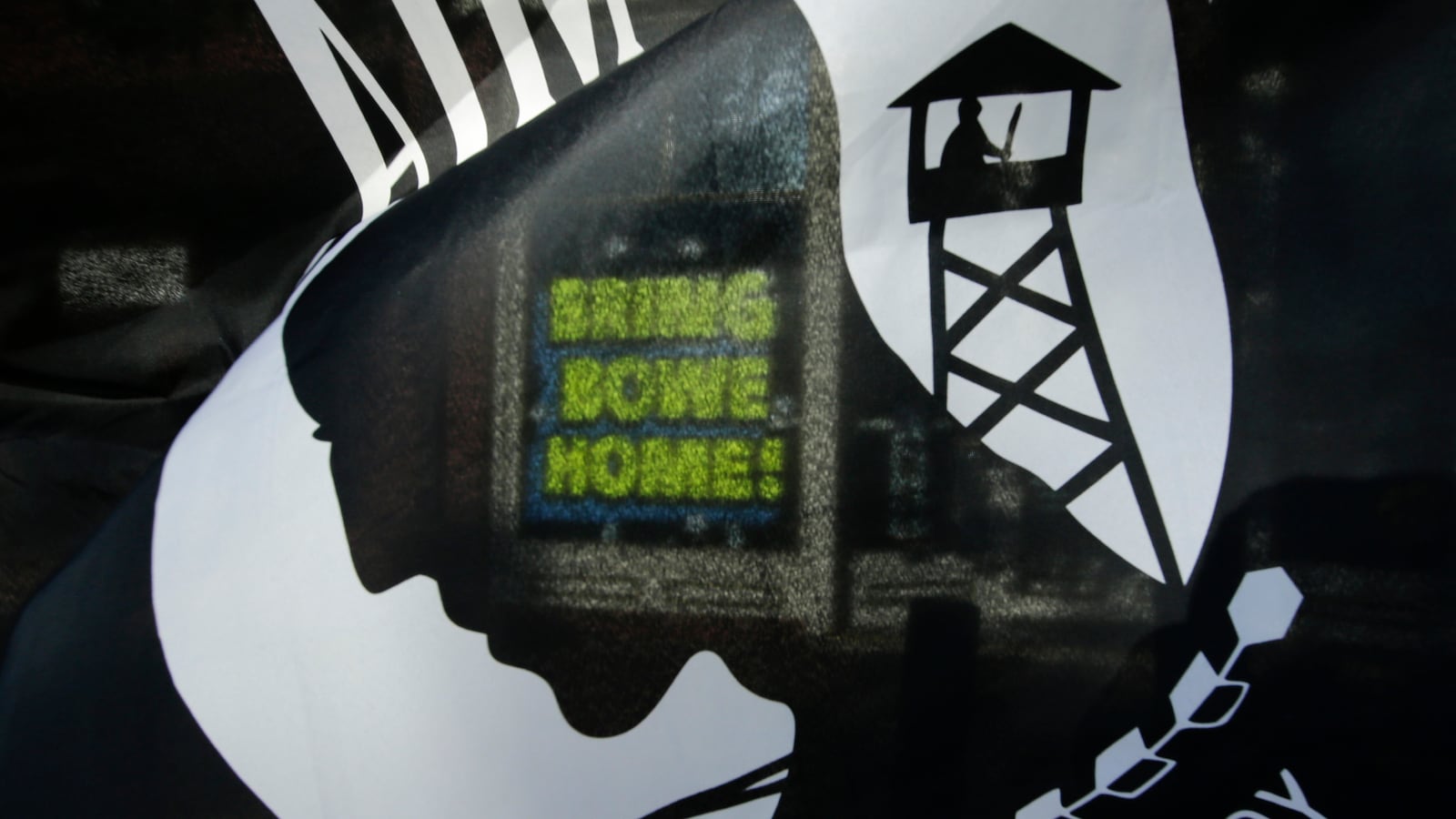I’m sure by now you have heard someone on TV say, of the five Taliban returnees, that we were going to have to give them back anyway, on cessation of hostilities. What you may not have heard said quite so often is why that is the case. But the reason is crucially important, because it brings to the fore one of the great hypocrisies under which the United States is forced to—or has chosen to—labor, and one we should do away with posthaste: this ridiculous idea that “We don’t negotiate with terrorists.”

With respect to the release of the hirsute quintet, here’s the deal. We declared war on the Taliban in 2001. “We,” the Bush administration, did this, although I confess I supported that war (never Iraq, though). Once we declared war on them and invaded their country, the rules of war applied. That means prisoners taken aren’t hostages. They are prisoners of war. And prisoners of war are accorded certain rights, some of which we violated but never mind that, and they are returned, usually at war’s end but sometimes before, through a process of… well, negotiation. It’s been this way since warfare began. And aside from prisoner exchanges, there is of course the matter of ending hostilities in the first place. That also must be negotiated.
“We” also—that is, President George W. Bush, by executive order—declared the Taliban a terrorist organization in 2002. The group is not on the State Department list, but a presidential declaration has the same legal standing and force.
And so, the conundrum of illogic that these two declarations created: The Taliban are both an enemy combatant with which we absolutely must negotiate, and a terrorist group with which we absolutely must not negotiate.
Obviously, those two realities exist in tension. How do we resolve it? You might say “by not declaring war on them,” and it has to be said, in retrospect, that sounds like a damn good idea. It should never, ever, ever be forgotten, while these Republicans bang on at President Obama for everything he does, that he was put in this position only because we started fighting this 14-year war—the longest in our history; we defeated Hitler, Mussolini, and Tojo in less than one-third the time—with fewer than 2,000 soldiers on the ground. And we—excuse me, “we”—did that because our brilliant leaders knew at that point that they wanted to save the bigger numbers for taking out Saddam Hussein. So yes, in hindsight, no war in Afghanistan, at least as it was waged by the geniuses who created this world-historic catastrophe, sounds a good thought.
But at least in warfare, there are certain rules that go back millennia. The United States’ fight against terrorism is only about 40 years old, and it largely coincides with the years of right-wing backlash. And so, just as we had to start getting “tough on crime” domestically in the late 1970s with a series of policies that are in fact bankrupting states and municipalities and are plainly racist, as even America’s greatest conservative (and evangelical Christian!) criminologist acknowledged before his premature death, we also had to be “tough on terrorism” abroad.
It’s hard to place exactly when “We don’t negotiate with terrorists” entered the political lexicon. It’s pretty clear that it was Ronald Reagan who first said it, maybe during the 1980 campaign, maybe later. What matters is that it was rank hypocrisy from the moment it flew out of his mouth. His transition team negotiated the Iranian hostages’ release behind Jimmy Carter’s back. That was certainly negotiating with terrorists. And what was the Iran-Contra affair? The overture was made to Iran (a terrorist state in American eyes, then and now) in the first instance in an effort to free some American hostages being held in Lebanon. The president who didn’t negotiate with terrorists negotiated a deal that gave the terrorism-sponsoring state more than 2,000 anti-tank missiles, maintaining in his mind the fiction that he hadn’t negotiated with terrorists through the belief that his people were dealing only with Iranian “moderates.” What these “moderates” were going to do with 2,000 anti-tank missiles except give them to the non-moderate, terrorism-sponsoring regime then engaged in a war with Iraq is one of the puzzles of the Reagan mind, but let’s press on.
Every president since has said we don’t negotiate with terrorists. And every president has. And I would say prudently and reasonably so. When terrorists can give you information, for a certain price or because you have a shared enemy, take it. George W. Bush paid a ransom of $300,000 to a radical Islamist group in the Philippines that was holding two American missionaries, a married couple, captive. To get them to safety? I say, fine. Alas, however, the man was killed, even after we paid the money. So an American president ended up financing terrorist operations and overseeing a failed military mission. Imagine what Lindsey Graham would be saying today if Barack Obama had done that over the weekend.
It’s a mindless, right-wing electoral politics that make our politicians say “I won’t negotiate with terrorists.” It’s just like “I won’t let the Willie Hortons out of prison,” or, from an earlier time, “We won’t let the ChiComs take over Korea.”
It’s a pledge of reflexive stupidity, forced on politicians by the reflexive stupidity of the right wing. It ties the hands of the candidates who actually do become officeholders. Life is much more complicated than these idiot slogans. On the domestic front, after 40 years of insanity like the Rockefeller drug laws and “three strikes and you’re out,” the stupid futility of the war on drugs is finally becoming apparent to most. In what year will we finally see that the war on terror has done us roughly as much good?






